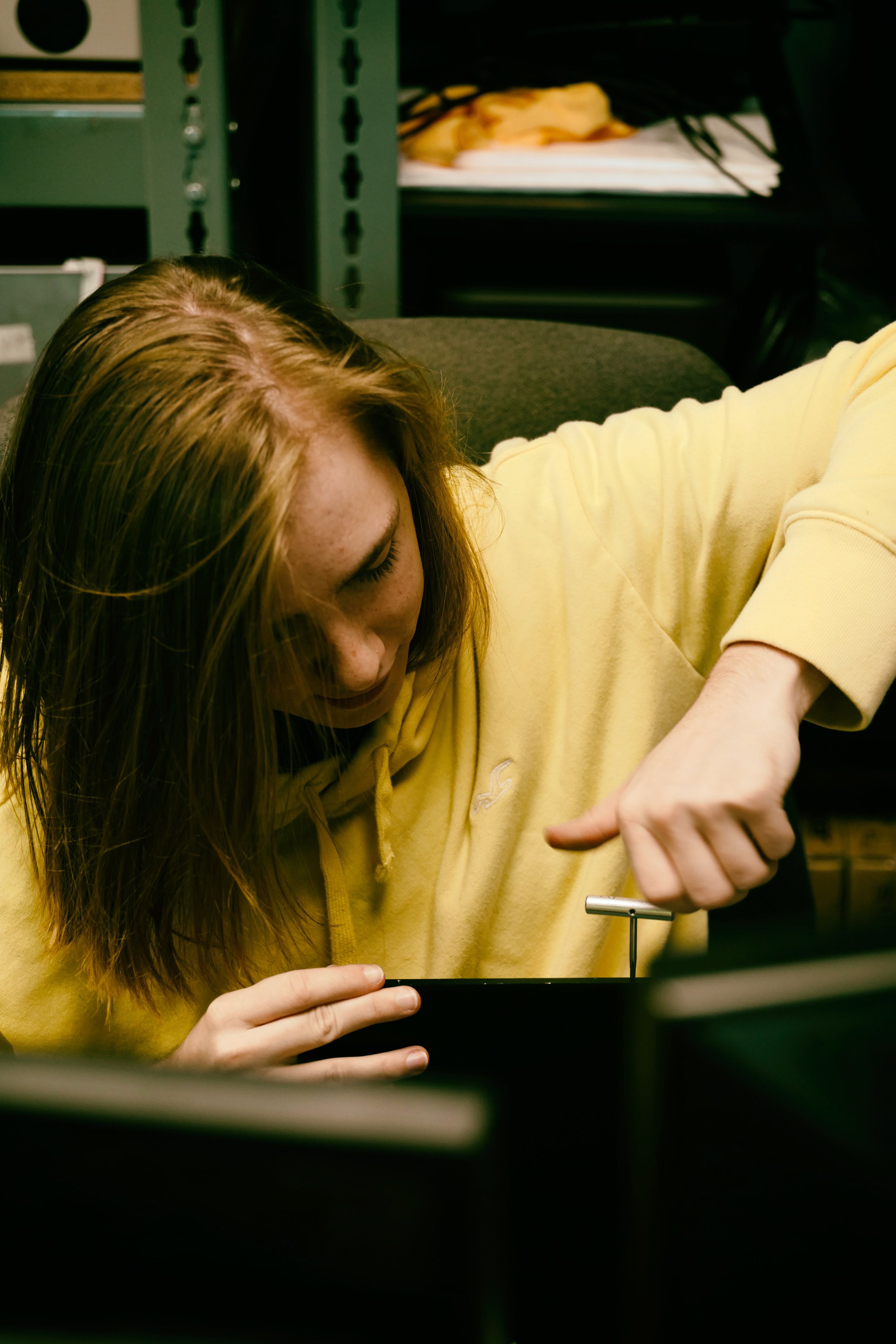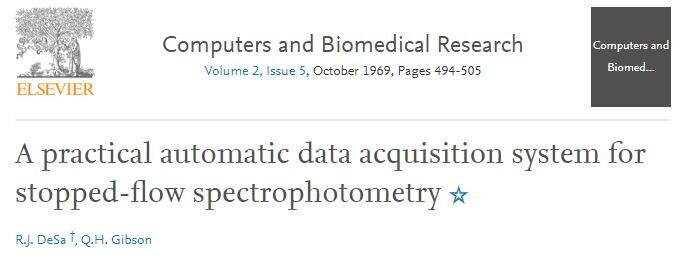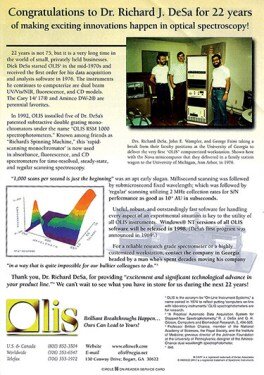Everything about Uv/vis
Wiki Article
Rumored Buzz on Spectrophotometers
Table of ContentsThe Ultimate Guide To Circular DichroismA Biased View of Circular DichroismGetting My Circular Dichroism To WorkThe Facts About Uv/vis/nir UncoveredThe Facts About Uv/vis Revealed

Spectrophotometry is most commonly applied to ultraviolet, visible, and infrared radiation, modern spectrophotometers can question large swaths of the electro-magnetic spectrum, consisting of x-ray, ultraviolet, noticeable, infrared, and/or microwave wavelengths. Spectrophotometry is a tool that depends upon the quantitative analysis of particles depending on just how much light is absorbed by colored substances.
The Circularly Polarized Luminescence PDFs
A spectrophotometer is commonly utilized for the measurement of transmittance or reflectance of services, transparent or opaque solids, such as refined glass, or gases. Numerous biochemicals are colored, as in, they take in visible light and therefore can be measured by colorimetric procedures, even colorless biochemicals can frequently be transformed to colored compounds ideal for chromogenic color-forming responses to yield compounds ideal for colorimetric analysis.: 65 However, they can likewise be created to measure the diffusivity on any of the listed light ranges that generally cover around 2002500 nm using various controls and calibrations.An example of an experiment in which spectrophotometry is utilized is the determination of the stability constant of a solution. A specific chain reaction within a solution might occur in a forward and reverse instructions, where reactants form items and products break down into reactants. Eventually, this chain reaction will reach a point of balance called an equilibrium point.
The Greatest Guide To Uv/vis
The quantity of light that passes through the service is a sign of the concentration of specific chemicals that do not enable light to travel through. The absorption of light is because of the interaction of light with the electronic and vibrational modes of molecules. Each kind of molecule has a private set of energy levels related to the makeup of its chemical bonds and nuclei and thus will absorb light of particular wavelengths, or energies, resulting in special spectral properties.
They are widely utilized in many markets consisting of semiconductors, laser and optical production, printing and forensic examination, as well as in labs for the research study of chemical substances. Spectrophotometry is often used in measurements of enzyme activities, determinations of protein concentrations, determinations of enzymatic kinetic constants, and measurements of ligand binding reactions.: 65 Ultimately, a spectrophotometer is able to figure out, depending on the control or calibration, what compounds are present in a target and exactly how much through estimations of observed wavelengths.
This would come as a service to the formerly produced spectrophotometers which were unable to absorb the ultraviolet correctly.
The Facts About Circularly Polarized Luminescence Uncovered
It would be discovered that this did not provide satisfactory outcomes, for that reason in Design B, there was a shift from a glass to a quartz prism which permitted better absorbance results - circularly polarized luminescence (https://www.figma.com/file/eT4jdyebIeUQ23ozOL89IX/Untitled?type=design&node-id=0%3A1&mode=design&t=vN0gsYYCmHohU5HF-1). From there, Model C was born with an adjustment to the wavelength resolution which ended up having 3 systems of it producedIt was produced from 1941 to 1976 where the rate for it in 1941 was US$723 (far-UV devices were an option at additional expense). In the words of Nobel chemistry laureate Bruce Merrifield, it was "probably the most important instrument ever developed towards the development of bioscience." Once it ended up being discontinued in 1976, Hewlett-Packard produced the first commercially readily available diode-array spectrophotometer in 1979 referred to as the HP 8450A. It irradiates the sample with polychromatic light which the sample takes in depending on its homes. It is transmitted back by grating the photodiode array which discovers the wavelength area of the spectrum. Since then, the production and implementation of spectrophotometry devices has actually increased profoundly and has ended up being one of the most ingenious instruments of our time.

Some Of Circular Dichroism
The grating can either be movable or fixed.In such systems, the grating is repaired and the intensity of each wavelength of light is measured by a different detector in the selection. Furthermore, most modern-day mid-infrared spectrophotometers use a Fourier transform method to obtain the spectral information - https://dribbble.com/olisclarity1/about. This strategy is called Fourier transform infrared spectroscopy. When making transmission measurements, the spectrophotometer quantitatively compares the fraction of light that goes through a recommendation service and a test service, then electronically compares the strengths of the two signals and calculates the percentage of transmission of the sample compared to the recommendation standard.

Report this wiki page